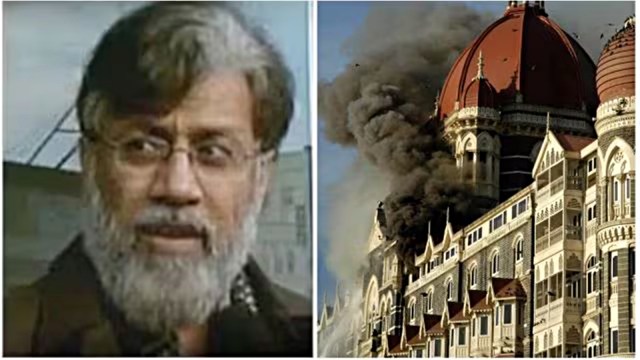Why NIA, and not Mumbai Police got first access to Tahawwur Rana?
A senior NIA official told The Indian Express, “The trial against Rana is likely to take place in Delhi court”
 Tahawwur Rana faces charges for his role in the Mumbai attacks. (Source: File)
Tahawwur Rana faces charges for his role in the Mumbai attacks. (Source: File)Even as the alleged plotter of the 26/11 terror attack, Tahawwur Rana, is being extradited to India from the United States, it was the National Investigation Agency (NIA) that went to the US to get his custody as against the Mumbai Police that had investigated the terror attacks case and filed the first chargesheet.
One of the reasons why the NIA will get first custody is the fact that the Mumbai Police in its original chargesheet filed in 2009 had not named Rana as a wanted accused, while the NIA had filed a chargesheet against him and other wanted accused in 2011 in the case filed in Delhi by the central agency in 2009.
The NIA filed the chargesheet before a Delhi court against nine persons, including seven Pakistani nationals and main conspirators, under sections including murder, criminal conspiracy, waging a war against the nation, of the Indian Penal Code and sections of the Unlawful Activities (Prevention) Act. The agency had detailed their roles in planning terror conspiracies, including the 26/11 attacks. It was also on its request that the Red Corner Notice was issued against Rana and others, necessary for extradition requests.
In Mumbai, it was only in 2023 when talks of his extradition gathered momentum and papers were sought that realisation dawned that he had not been named as a wanted accused. Following this, the crime branch filed a chargesheet in the matter detailing Rana’s role.
“The Mumbai police had not mentioned Rana in the earlier chargesheets they had filed due to which they could not follow the logical procedures ahead,” an official said.
A senior NIA official told The Indian Express, “The trial against Rana is likely to take place in Delhi court.”
Apart from Rana, extradition requests were sent for US citizen and main accused David Headley, who was granted pardon in 2015 by the Mumbai court in the 26/11 terror attacks case. He deposed as a prosecution witness against accused Zabiuddin Ansari alias Abu Jundal, an alleged handler of the 10 Pakistani men.
Headley was given a 35-year jail term in the US for his role as a conspirator in the terror attacks after he accepted responsibility for his involvement and in a plea agreement ensured that he will not be extradited to India.
In Mumbai, the trial in the 26/11 case is pending against Abu Jundal. It has been stayed by the Bombay High Court currently. In the first phase of the case, the trial of Ajmal Kasab, who was arrested on November 26, 2008, took place in a Mumbai court, which convicted him, and it was confirmed by the Bombay High Court and then the Supreme Court, leading to his execution in 2012.
Gangster Chhota Rajan, who was extradited in 2015, faced multiple cases, the trials for which are being held in a Mumbai court via video-conference, while he was never brought to the city and remains lodged in Tihar jail in Delhi, due to security reasons.







